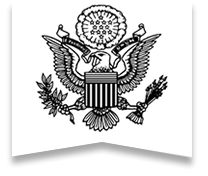Quigley Introduces the Transparency in Government Act to Improve Accountability & Public Access
Today, U.S. Representatives Mike Quigley (IL-05), co-founder and co-chair of the Transparency Caucus, re-introduced the Transparency in Government Act (TGA) to increase access, accountability, and transparency at every branch of the federal government. This is the fifth time Rep. Quigley has introduced TGA, which would strengthen oversight of federal spending, expand financial disclosure requirements of both lawmakers and lobbyists, modernize how the public can access information, and improve judicial transparency.
"While I've introduced this legislation every Congressional session since I was first elected, I believe the Transparency in Government Act is needed now more than ever. The American people are justifiably fed up with the government's failure to instill common-sense transparency measures that increase public access and restore public trust," said Rep. Quigley. "This year, we've seen federal agencies scrub information from their official websites and federal appointees fail to disclose potential conflicts of interest. This bill addresses many of the concerns I've heard from frustrated constituents by making vital information easier to access and understand. In order to strengthen our democracy, I believe it is our shared responsibility to shine a brighter light on our government operations and our policymakers."
The Transparency in Government Act:
- Increases disclosures of Members' of Congress personal finances, office expenses, gift reports and foreign travel, and improves public access to information by publishing reports online.
- Makes Members' recorded votes more accessible by requiring the Clerk of the House to publish vote records online in an easily searchable, structured data format, and for Members to include their individual vote record on congressional websites.
- Requires all congressional committees to post public hearings and markup schedules, related bill language, witness testimony, and audio and video recordings online.
- Increases public access to Supreme Court proceedings by requiring by law the proceedings of the court be audio and video recorded and made available on the Supreme Court's website.
- Strengthens the Freedom of Information Act (FOIA) by requiring agencies to put all completed FOIA requests online in a format that is searchable, sortable and downloadable. Also ensures that all agencies utilize the FOIA Online website to log, track and publish the status of requests.
- Allows the public to know who is meeting with our nation's highest leaders via improved access to White House and agency head visitor logs.
- Improves oversight of lobbying efforts by establishing new definitions for lobbyists and stricter rules governing how and with whom they meet.
The 2017 re-introduction of TGA is similar to the TGA bill text introduced in previous Congresses, but it also includes new provisions that have been added to further promote government transparency and accountability. These additions include a website to provide access to congressionally mandated reports; a request for digital spreadsheets to accompany appropriation bill reports; efforts to expand federal contractor compliance and increase transparency for the federal grant process; amendments to strengthen the Freedom of Information Act; and a provision to ensure DOJ complies with guidance to turn over their records to the National Archives.
"The TGA is a forward-looking bill that includes critically important provisions that would strengthen much-needed government openness and accountability," said Lisa Rosenberg, Executive Director of Open The Government. "Importantly, the TGA includes reforms to the Freedom of Information Act (FOIA) that would enhance public access to information and reduce the body of secret law relating to matters of public concern, including domestic surveillance, immigration policy, and the use of military force abroad."
"Demand Progress Action is pleased to endorse the Transparency in Government Act, comprehensive government openness and accountability legislation that is a model for what government should be doing," said Daniel Schuman, policy director for Demand Progress Action.
"Whether online from home or with assistance in their local library, all taxpayers should have access to the valuable reports produced by the Congressional Research Service," said Jim Neal, President of the American Library Association. "ALA thanks Representative Quigley for introducing the Transparency in Government Act and for his commitment to ensuring public access to information."
"Eroding public trust in our institutions combined with the rapid pace of innovation call for a serious, sustained and bipartisan reimagining of how the federal government functions," said Seamus Kraft, Executive Director and Co-Founder of The OpenGov Foundation. "Congressman Quigley has made this his mission for years, steadfastly reaching across the aisle and into the private sector to modernize federal government systems, improve public access and strengthen accountability. The watershed Transparency in Government Act delivers on all these fronts. We applaud the years of hard work put in by Mr. Quigley and his staff in the better government trenches."
As the co-founder and current co-chair of the Congressional Transparency Caucus, Rep. Quigley has been committed to expanding public access to government information and enforcing accountability. This year, he introduced the COVFEFE Act to require presidential social media postings be classified at presidential records and the MAR-A-LAGO Act to require disclosure of visitor logs at the White House and other Trump properties where official government business is conducted. In an effort to improve transparency in the judicial branch, Rep. Quigley co-sponsored the Cameras in the Courtroom Act, which would require the Supreme Court to allow open sessions to be televised.
